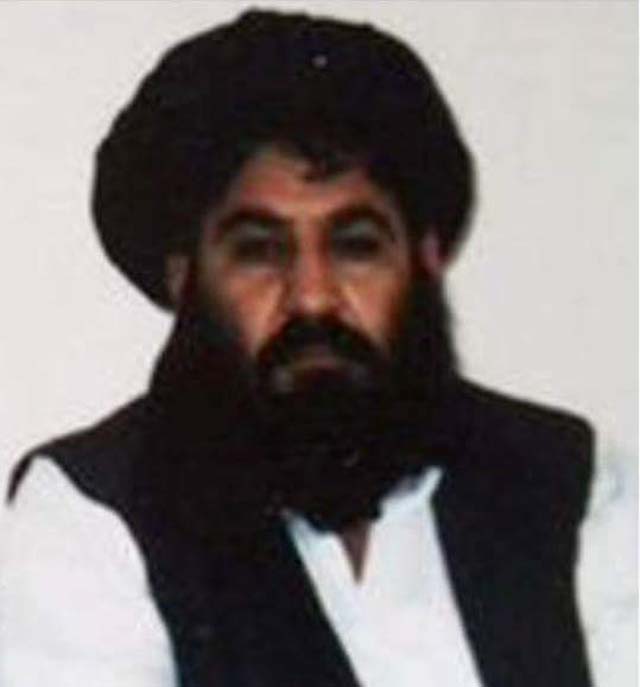Rendering legitimacy to the Taliban’s newly designated leader Mullah Akhtar Mansoor seems a highly controversial issue amongst the Taliban. Mullah Omar’s family, including his brother Mullah Abdul Manan and his son Yaqub, denies the legitimacy of Mansoor’s leadership. Similarly, a number of warring faction pledge allegiance to the self-styled “Islamic State” group, mainly in Afghanistan. However, Taliban officials claim that Omar’s family does not carry much weight but the Taliban’s Council – that has elected Mansoor as Omar’s successor – plays the key role. The question remains that: was Mullah Omar’s regime based on legitimacy?
Political pundits introduce many sources for a legitimate government. In the past, theocratic system stemmed divine legitimacy based on divine legislation – religious messengers acquired the legitimacy of their government from the same source. However, the historical kings claimed the very legitimacy and introduced themselves “caliph” or “emir”. To put it succinctly, the kings ruled the masses under the aegis of religious sharia. Furthermore, they also used to appoint their progeny before passing away – their regime handed over from their first generation to the next and the masses got used to this trend. Anyone who dared raise their eyebrows would be beheaded on the spot.
The second basis for legitimacy is a leader’s charismatic character – especially spiritual charisma. A charismatic personality will rule the hearts and minds of the masses rather than imposing themselves despotically. The masses, smoldering with a deep sense of affection and emotion, will devote their lives wholeheartedly. In other words, their theosophical feelings will outweigh the philosophical arguments, therefore, they will pledge allegiance to such a leader with great pride. Although, this type of legitimacy is also tinged with religious ideology and puissant beliefs, nonetheless it is justifiable.
However in modern age, states are supposed to originate legitimacy from the law – mainly the democratic states. Constitutionally, elections must be held and each qualified citizen, including women, will have to be entitled with suffrage.
Since democracy has no place in the Taliban’s regime, they still force themselves with the words of “caliph” or “emir” – which once used to be deemed sacred. In another term, the Taliban officials operate under sacred terms and mask their sinister face with religious sharia. They attribute their legitimacy to divine legislation; however their practices are against the instructions and ethical codes defined by the legislation. So, they interpret them in their own political interests and make use of them in their advantages.
Besides announcing “Islamic Emirate” and claiming divine legitimacy, the Taliban’s deceased leader Mullah Omar was a charismatic leader. His jihad against the former Union of Soviet and his war against the US-led NATO forces made the radical groups hold him in high esteem and pledge allegiance to him. As a result, a large group of the militants did not even see him in their whole life, but sacrificed their lives on his way and under his edicts. To put it succinctly, Mullah Omar’s charisma for his followers was beyond doubt. Now, the question is about Mullah Mansoor?
I believe that Mansoor can be everything but a charismatic personality. Those militants who pledge allegiance to the IS group will never stop doing so even if Mansoor issues fatwa against them. And with the disclosure of the Omar’s death, a larger number of the militants seem to show tendency towards Abu-Bakr al-Baghdadi – the leader of the Islamic State in Iraq and Syria (ISIS). Hence, Mullah Mansoor stays a number of the Taliban’s de facto leader.
Carter Malkasian, the author of ‘War Comes to Garmser: Thirty Years of Conflict on the Afghan Frontier’ writes about the Taliban’s deceased leader Mullah Omar as, “Omar was a major figure in Afghanistan and Pakistan. In my years in Afghanistan as a civilian adviser to the U.S. military, I learned that this rarely seen and poorly educated man had won the respect of many Afghans. One well-known former member of the Taliban described Omar as a ‘true mullah, a true Pashtun and a true Afghan.” He further quotes Kandahar’s infamous police chief and no friend of the Taliban Abdul Raziq as, “All Taliban obey Mullah Omar. The Taliban will not simply start fighting each other. They are one. This is their advantage over the government.”
The IS group poses threat to the Taliban’s legitimacy in Afghanistan and compel any new Taliban leader to take a hard line, lest Taliban fighters think him weak and change allegiances. The upshot is that any new leader would be unlikely to agree to a peace deal in the near term and militancy will continue unabated – this will also put a negative impact on Afghanistan’s security as we suffer the bulk of terrorism in recent days. Thus, it should be noted that the IS makes advantages of the Taliban’s internal conflict. Both, Taliban’s conflict and IS’s exploitation of it will compound insecurity in Afghanistan.
To avoid rhetoric, Mullah Mansoor’s legitimacy as Omar’s successor is under question. His succession has splintered the militants and it was a hard blow to the Taliban. Although he attempts to win a unanimous agreement via showing hard indication to peace talk as “enemy’s propaganda” or making heavy inroads in Afghanistan, nonetheless he will fail to gain legitimacy by foolhardiness. So, a number of the Taliban, including Mullah Manan and Yaqub, deem Mansoor as a de facto leader.

